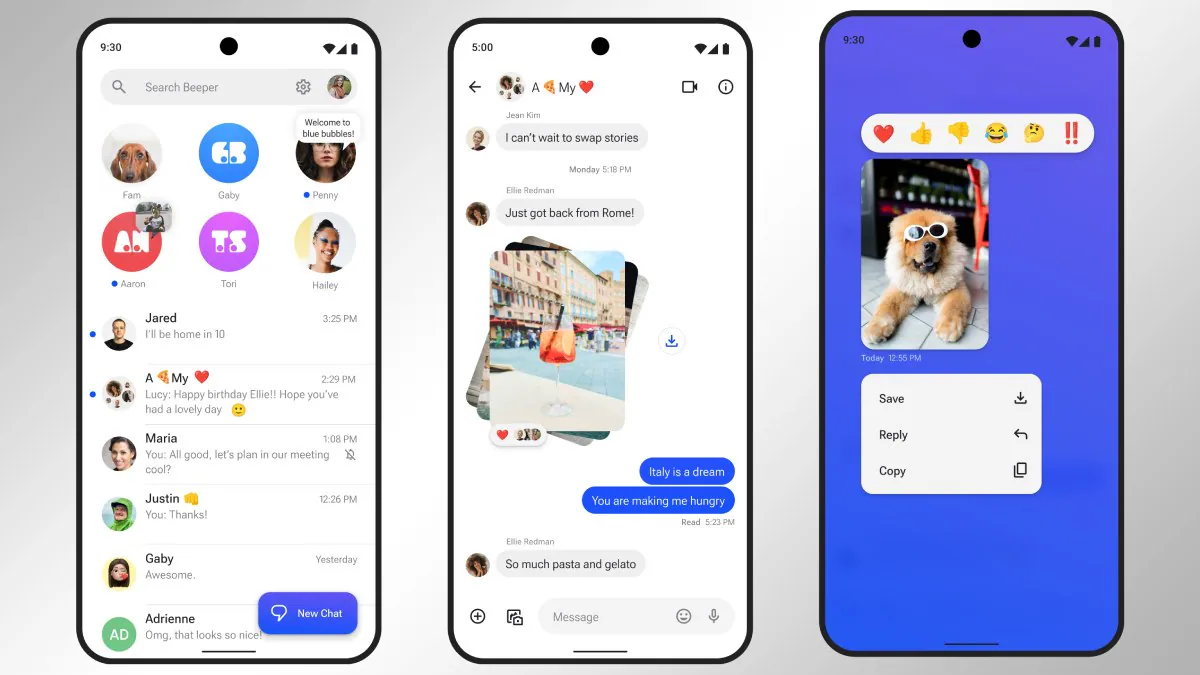Beeper Mini has a new “fix” on the way for its broken iMessage on Android setup. Still, it requires admittance to one of Apple’s Mac desktops or laptops in order to stash some fundamental information about itself (which will then be returned from time to time) inside an innovation called registration data. The question now becomes how many users will remain loyal. On Wednesday, December 19, you will find the new capability in an update to Beeper Cloud for Mac.
Beeper’s current approach involves registration data sent from a Mac computer to the cloud in order to authenticate iMessage on Android. Today, however, new procedures will move this responsibility over to users themselves. And indeed, we have been doing so with our fleet of Mac servers to date, and that has proven very easy for Apple to attack because thousands of Beeper users were using the same registration data, a spokesperson wrote on Reddit.
What is Beeper Mini?
Beeper Mini is a software that says it can bring iMessage to Android clones. It uses an impressive workaround by reverse-engineering the protocol behind Apple’s service, playing fast and loose with fake or shadow IDs. In October 2023, Beeper Mini was launched. It earned quick notice among Android users wishing to interact with iMessage.
However, Beeper Mini’s success was short-lived. Apple soon caught on to their scheme and started blocking and banning the fake Apple IDs that Beeper Mini was using.
Beeper Mini initial launch and Apple’s response
In October 2023, Beeper Mini appeared. Its goal was to allow Android users to use the iMessage protocol without having a Mac or paying for cloud service simply by using an App on their smartphones. A reverse-engineered iMessage protocol allowed Beeper Mini to connect directly with Apple’s servers. There was no need for a relay device like Pushcut or the now-extinct sense. Beeper Mini also promised to offer end-to-end encryption, phone number registration, group chats and the other features enjoyed by users of iMessage.
But a few days after Beeper Mini went public, it faced a major setback. Spotting and rejecting bogus credentials from the real thing allowed Apple to block access of the app to iMessage servers. Beeper Mini has major implications for users ‘security and privacy. Apple issued a statement urging people to stay away from the app. But Beeper Mini responded that its app was safer and more convenient, calling on Apple to undertake a third-party audit.
Beeper Mini’s update and its limitations
Beeper Mini did not give up on its mission to bring iMessage to Android users and relaunched its app with a new version that requires an Apple ID to sign in and send messages using an email address instead of a phone number. It claimed that this was a temporary workaround and that it was still working on a more permanent solution. Beeper Mini also decided to make the app free for the time being due to the instability and chaos of the situation.
However, this update did not solve the problems that Beeper Mini faced; instead, it introduced new ones. First of all, by requiring an Apple ID, Beeper Mini potentially compromised the privacy of its users, as it exposed their email addresses to Apple and other iMessage users. Secondly, by losing the phone number functionality, Beeper Mini reduced the convenience and usability of its app, as users had to add contacts or use QR codes to start conversations manually. Thirdly, by depending on Apple’s approval, Beeper Mini made itself vulnerable to further blocks or bans from Apple, which could change its policies or protocols at any time.
Beeper Mini’s prospects and alternatives
Beeper Mini’s latest update is not a satisfactory solution for Android users who want to use iMessage, as it does not offer the same features, security, or reliability as the original service. Beeper Mini’s prospects are also uncertain, as it faces many obstacles and challenges from Apple, which has the power and incentive to prevent or hinder its app from functioning. Also, Beeper Mini may face legal and regulatory issues, as it may violate Apple’s terms of service, intellectual property rights, or antitrust laws. Beeper Mini may also face competition from other developers who may try to offer similar or better services.
Therefore, Android users who want to communicate with iPhone users may want to consider other options, such as using cross-platform apps like WhatsApp, Signal, Telegram, etc. These apps are widely used and supported by both Android and iOS devices and offer features such as end-to-end encryption, voice and video calls, stickers, etc. Also, These apps are more stable and secure than Beeper Mini, as they do not rely on reverse engineering or hacking Apple’s servers. These apps may not have the same level of integration or popularity as iMessage. Still, they may provide a more satisfactory and sustainable solution for Android users who want to use iMessage.
